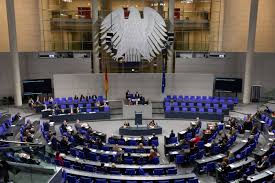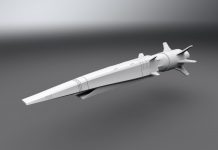
Germany’s coalition government has approved a major reform aimed at streamlining its military procurement process, a move seen as essential to converting upcoming defense budget hikes into tangible capabilities.
The Bundeswehr Procurement Acceleration Act, endorsed by the ruling parties on July 23, marks the most comprehensive revision of Germany’s defense acquisition system since the end of the Cold War. Set to remain in effect until 2035, this legislation builds significantly on interim measures implemented in 2022 after Russia’s invasion of Ukraine.
Defense Minister Boris Pistorius described the new legislation as a “quantum leap” for the nation. One of its key features eliminates the customary suspension period following legal appeals over contract awards, which previously allowed losing bidders to stall acquisitions for extended periods—something officials say has contributed to persistent gaps in military readiness.
The law also grants procurement agencies the authority to move forward with contracts even before full financing is secured, provided the deal serves national defense interests. In such cases, bidders would be notified of this condition in the tender documentation.
Unlike the temporary 2022 legislation—which focused solely on military equipment and was slated to expire in 2026—the new act covers all procurement needs of the Bundeswehr, including civilian goods and services. Some urgent contracts will now be exempt from EU-wide tendering rules, narrowing eligibility to suppliers within Germany or the EU.
Previous iterations of this legislation faced criticism for reducing oversight, with Transparency International warning in 2022 that it increased the risk of corruption within an already vulnerable area of public procurement.
Under the new rules, procurement authorities may limit bids to companies within the EU or European Economic Area and require that items be sourced from European manufacturers. “Which country we buy from depends on who can quickly deliver the necessary materials,” said Annette Lehnigk-Emden, head of the Bundeswehr’s procurement agency, in a written response to Reuters.
However, some experts caution that the changes could disproportionately benefit large, established defense firms already integrated into NATO and EU systems, while smaller companies may struggle. Holger Hofmann of the Cologne-based law firm Oppenhoff noted that the suspension of lot splitting and special provisions for interoperability tend to favor well-established players. Smaller firms also face greater challenges with financing under the new rules.
Notably, the reform does not alter the long-standing requirement for parliamentary approval of any defense contract exceeding €25 million ($29 million), which still requires clearance from the Bundestag’s budget committee.
The legislation is being introduced as Germany plans to nearly double its defense spending—from €90 billion in 2024 to €162 billion by 2029—in line with NATO targets and national strategic objectives. Although the Cabinet has approved the draft, it must still pass through the Bundestag, where the governing coalition has the numbers needed for passage.




